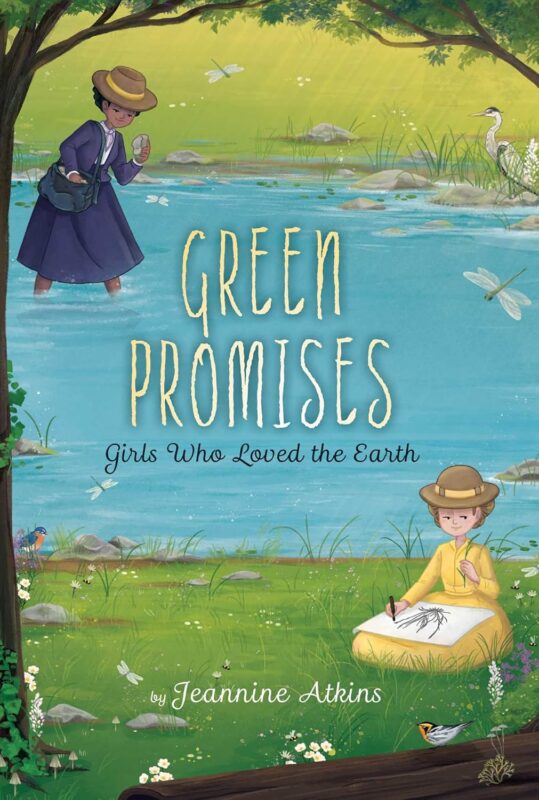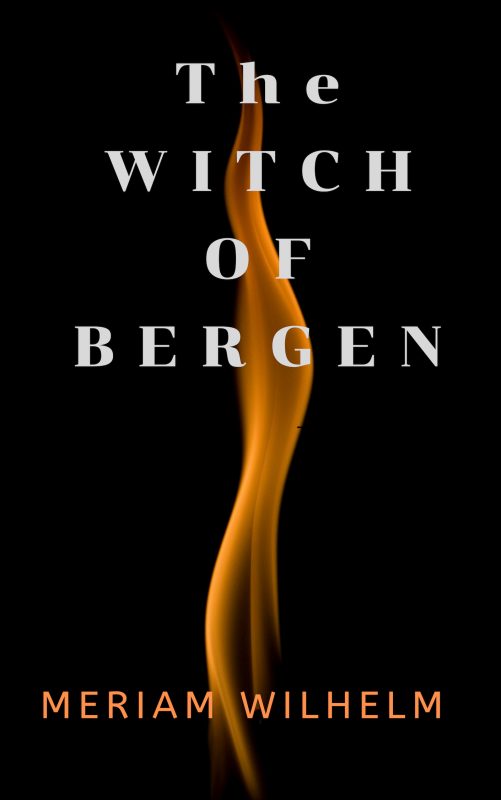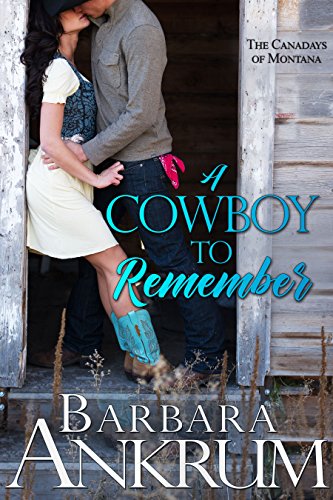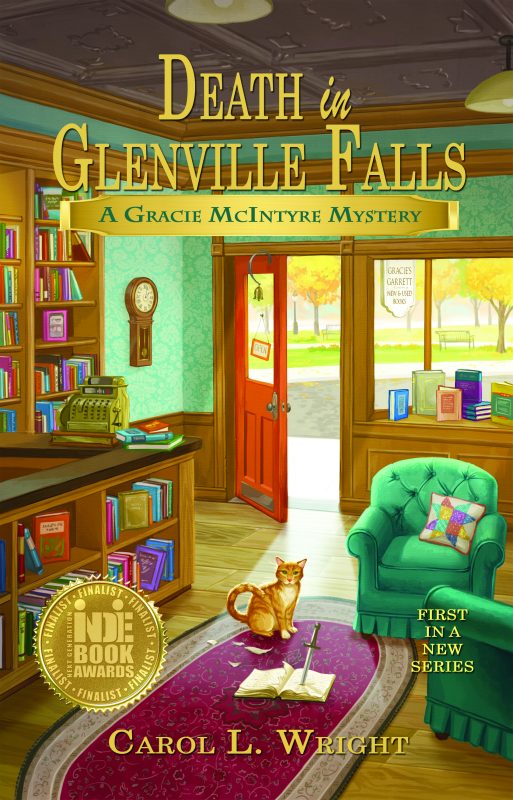Four Steps To Face Your Fears
October 12, 2021 by Denise M. Colby in category The Writing Journey by Denise Colby tagged as Denise M. Colby, encouragement, Writing Advice, writing lifeI wanted to write something encouraging this month and decided to repost one of my earliest posts from this blog titled Face Your Fear, which I wrote in 2017. I have found throughout my writing journey, I’ve had some type of fear hold me back, which manifests itself in taking a hit on my productivity and confidence in my writing. So I thought I would repost and share the four steps to help face your fears.

Because I truly believe taking time to understand your fears each time they rear their ugly heads, can help you overcome them.
And I need the reminder myself these days.
So without further ado, here is the post.
What’s your biggest fear as a writer? For some of you, it might be putting the ideas swirling in your mind into actual words on the paper. For others, it might be pitching your manuscript or creating social media posts. Whatever it is, we all have them. And all that fear causes anxiety, worry, tension, panic, despair…you get the idea (we all write characters who struggle with these, right?). If you’re anything like me, my fears prevent me from accomplishing or completing some of my writing goals.
Four Steps To Help Face Our Fears
First, you must identify it. Write it down. What’s your biggest fear? Stare it straight in the face. It’s not so scary once you look at it written out.
Second, define it a bit more. Add another layer of thought to it. What specifically about it makes you have fear. Is it the entire thing or just a part or two. And then ask yourself, why is it scary for you?
Third, debunk it. Discover counter arguments to your fear. Find out from other authors if they have experienced the same fear. Soon you might realize this is a normal reaction to the process and you might even learn ideas to overcome your fear.
Fourth, push through it. Do one task which causes fear. Ask yourself —what’s the worst that can happen? Find a writing partner who can encourage you and help challenge you to follow through. Note: You may have to do this part more than once.
My own experiment with facing my writing fears
Step #1
I decided to take a 4 x 6 index card and ask myself what my greatest fear was. What I wrote surprised me. In my mind, I had a general overall fear, but when I wrote it down I saw something more specific.
I don’t always sit my butt in the chair and on the surface I tell myself it’s because I don’t have time, but deep down I’m seeing now it might be because I’m afraid. What if I sit down for an hour session and it isn’t any better than when I started? What if I only edit through a 600 word block in that time? I will never finish. And so on and so on….
So, for me, my fear is getting it wrong. I want to hit the mark and soar with my writing. I’ve entered a lot of contests and shown my work, and although I get encouraging feedback, I’m still missing the mark. And I’m afraid it will always be that way.
Step #2
I had to ask myself what specifically about getting it wrong meant. Was it failure? Afraid of what people think?
I don’t think I’m afraid of what people think so much (although I want people to like my work), as I am wondering if what I write will ever be ready to publish. I have lots of ideas, but when I write them down, they don’t sound as great as I thought they were. And I’m afraid no matter how much time I put in, I may never achieve my goal of getting published.
All this fear and doubt affects what I do day to day. How I spend my time. My mental state when I’m writing. And I don’t want it to.
Step #3
Fight back. Who decides if it’s wrong anyway? And how do they decide? Look at how many published authors sent in their manuscript numerous times before it was accepted. It’s just part of the process.
See, by writing it down, I can find counter arguments to what my fear is telling me. And it helps calm down the panic that wants to creep in. It keeps me from letting my fear stop me completely.
Step #4
Step four says to do something to face your fear, so I need to take risks and not be so afraid of doing so. Write a blog post even if it’s not perfect and post it. Write a new scene and show someone. Get feedback and keep trying. If I don’t do any of these things, I let the fear win. There is always going to be more I can add, more to improve, so why am I waiting to hit send? Waiting doesn’t do anything but feed my fear.
Fear keeps us from our goals. Something none of us wants.
For fun, I came up with this acronym. As we know, fear is an emotional response. We need to stop reacting to our fear and work on ways to work through it. So, FACE your FEAR. Fix And Change Every Fear from Emotional to an Analytical Response.
All so we can meet our goals. We all have goals we want to achieve, right?
So take some time and write down what your fear is and then face it. You just might work through that writer’s block you’ve been struggling with.
Hugs & Blessings,
Denise
Denise M. Colby loves to write words that encourage, enrich, & engage. Every year, she chooses a word to focus on. This year her word is Wisdom. If you’d like to see more of Denise’s posts on this blog, you can check out her archives.
Perfume: what you never expected to find in a World War II novel set in Occupied Paris by Jina Bacarr
October 11, 2021 by Jina Bacarr in category Jina’s Book Chat, Writing tagged as historical fiction, Paris, perfume, Resistance, World War 2
I’ve had a zillion jobs in my career.
US Army rec specialist in Europe, AM/FM radio commercial artist, traveling cosmetic saleslady for a French company, club dancer, soap opera player, writer for kids’ TV…
And perfume model.
So, what does a perfume model do?
The gig started when I got a call from the modeling agency I worked for asking me if I was available to introduce a new perfume. Since I was freelancing for a travel magazine company in Beverly Hills back then, I jumped every time the agency called me with a perfume job.
The pay was good. The hours ranged from four to six hours a day. The location was always a posh department store (remember Bullocks, I Magnin’s?), and occasionally, I’d get to wear wardrobe from the couture department to complement the color scheme and theme of the perfume.
I felt like a film star.
After a session with the perfume rep explaining their marketing campaign, off I went. Sashaying around the store like I was walking on the red carpet. I’d engage customers in small talk and introduce them to the perfume.
I’d spray it on their wrist – or mine if they preferred – and then gave them a sample. It wasn’t easy. I was snubbed by snooty women, hit on by male customers, and constantly asked, ‘Where is the ladies room?’
By the end of my shift – toes squashed in three-inch heels – my feet were killing me.
But I loved it. The customers were enchanted by the quick whiff of a new fragrance and loved being whisked away for a moment of glamour. I’d regale them with my stories about Paris and the Belle Époque department stores I visited along with the history of perfume.

And the different notes of the perfume. Top, heart, base.
I soon discovered you didn’t sell the steak… perfume, that is… but the sizzle. The mystique, the mood. I had to evoke an emotional response in the customer and I did it by storytelling and learning as much as I could about perfume. How it’s manufactured, the ingredients, what that perfume can do for that customer to make her happy, feel sexy. Powerful. Loved. I became an amateur ‘nose’, learning about the different scents and essences and how they configure in varying ratios to make up a lovely new fragrance.
I used that perfume experience to create parfumier Angéline de Cadieux when I wrote ‘The Lost Girl in Paris’.
How a girl from a controversial upbringing becomes a famous perfumer during the war when she comes to Paris in 1940 to escape the Gestapo. Then how she uses perfume to do her part to win the war…
THE LOST GIRL IN PARIS is up for pre-order – and my just-revealed cover is on Amazon!
Release date: November 30, 2021
US https://www.amazon.com/dp/B09B1QDRVW/
UK https://www.amazon.co.uk/dp/B09B1QDRVW/
CA https://www.amazon.ca/dp/B09B1QDRVW/
Australia https://www.amazon.com.au/dp/B09B1QDRVW/
——————
Photo credits:
Jina Bacarr: Laura Burke Photography
Background: ID 137251284
© Viktoriya Panasenko | Dreamstime.com
——————–
Nearly 500 ratings on Amazon UK!
The Resistance Girl
Juliana discovers her grandmamma was a famous French film star in Occupied Paris & her shocking secret…

Babies, Books and Autumn?
October 10, 2021 by Tari Jewett in category Charmed Writer by Tari Lynn Jewett tagged as babies, booksIt’s October! Autumn is my favorite time of the year. I love the crisp autumn air, and the anticipation of the holiday season. This year is especially special. Our new grandson arrived and will experience his first autumn, first Halloween, first Thanksgiving and for Christmas. I hope you’ll forgive my absence the last few months, we’ve been totally captivated by Milo.
Milo Porter was born on April 9, to my oldest son Gerrod and daughter in law Kristina. And he has absolutely stolen my heart. Did I mention that he was named for me? Porter is his middle name, and my maiden name. I couldn’t understand why I couldn’t get a full name from my son before he was born, then when they were leaving the hospital (because of the pandemic we couldn’t be there) he sent me a picture of the discharge papers, and there was his name. Okay, I might have cried (sobbed). They named their baby for me.
He’s beautiful, charming and has both GrandPaul and I wrapped around his little finger.

We all read to him, but I think the first to read a book to Milo was his big brother Isaac. Yes, this is a family of book lovers.

I do have some writing news. #SilverBracelets Book 2 in my #HermosafortheHolidays series is finally out in paperback. We had some glitches along the way, but it’s available on Amazon, and I’m so excited to finally have print copies!
And if you haven’t read #HauntedHermosa yet, this is the time! It’s a sweet little Halloween romcom. It’s available in ebook on Amazon.

I’m off to convince my son that Grandma needs zoom time with Milo and Isaac.
Happy October everyone!
Veronica Jorge: October Featured Author
October 7, 2021 by Veronica Jorge in category Apples & Oranges by Marianne H. Donley, Featured Author of the Month tagged as Featured author, Reviewed by Veronica Jorge, Veronica Jorge, Write from the heart

Manager, Educator, and former High School Social Studies teacher, Veronica credits her love of history to the potpourri of cultures that make up her own life and to her upbringing in diverse Brooklyn, New York.
Her Work in Progress is a Young Adult Novel based on a search into her ethnic roots that explores identity, belonging, and self-discovery. Her genres of choice are historical fiction, where she always makes new discoveries, literary works because she loves beautiful writing, and children’s picture books because there are so many wonderful worlds yet to be imagined and visited.
She currently resides in Macungie, PA., but she’s still a Brooklyn girl at heart. How sweet it is!
Veronica’s story “Fiona Malone’s Fesh,” is featured in the Fall 2021 Issue of Bethlehem Writers Roundtable.
In addition to her fiction, she has a monthly column, Write from the Heart, here on A Slice of Orange where she writes about writing, life and does book reviews.
Connect with her on Facebook @VeronicaJorgeauthor
Books Reviewed by Veronica
Glamor Girl Blitz
October 6, 2021 by marianne h donley in category Apples & Oranges by Marianne H. Donley, Rabt Book Tours tagged as @RABTBookTours, Glamor Girl, historical fiction, The Fourniers, Vera Jane Cook
Date Published: 10-06-2021
Publisher: Indies United
Escaping from her childhood, Sheela, flees her aunt’s motel where she is forced to work as a cleaning maid and provide ‘favors’ for wealthy guests and winds up in Miami in Kit Malone’s fancy brothel. Beautiful and stately, Sheela becomes a high-class prostitute, a millionaire’s mistress and a Billy Rose showgirl. When she meets the love of her life in Manhattan, the charming but naïve Julius Clark, life blossoms into something both frightening and titillating. But when Sheela gives birth to her daughter, Fanny, it is this shadowy and stormy relationship that alters the course of both of their destinies and defines their future.
About the Author
Vera Jane Cook was born in New York City and has been a city girl ever since. As an only child, she turned to reading novels at an early age and was deeply influenced by an eclectic group of authors. Before Jane became a writer, she worked in the professional theatre and appeared on television, in regional theatre, film and off Broadway.
At the age of fifty Jane began to write novels. Some of her titles include Dancing Backward in Paradise, winner of an Eric Hoffer Award for publishing excellence and an Indie Excellence Award for notable new fiction, 2007. The Story of Sassy Sweetwater and Dancing Backward in Paradise received 5 Star ForeWord Clarion Reviews and The Story of Sassy Sweetwater was named a finalist for the ForeWord Book of the Year Awards. She has published in ESL Magazine, Christopher Street Magazine and has written early childhood curriculum for Weekly Reader and McGraw Hill.
Jane still lives on the upper west side of Manhattan right near Riverside Park, where she takes her delightful dogs, Peanut and Carly, for a jog,. She comes home to her spouse of thirty years and her two cats, Sassy and Sweetie Pie.
Contact Links
Purchase Links
Affiliate Links
A Slice of Orange is an affiliate with some of the booksellers listed on this website, including Barnes & Nobel, Books A Million, iBooks, Kobo, and Smashwords. This means A Slice of Orange may earn a small advertising fee from sales made through the links used on this website. There are reminders of these affiliate links on the pages for individual books.
Search A Slice of Orange
Find a Column
Archives
Featured Books
GREEN PROMISES: GIRLS WHO LOVED THE EARTH
Rich in history, facts, and imagination.
More info →THE WITCH OF BERGEN
Travel back through time with Carynn Cinnamon as she embraces romance, witchery, mystery, and joy
More info →A COWBOY TO REMEMBER
Can Jake convince Olivia to risk it all one more time . . .
More info →DEATH IN GLENVILLE FALLS
For Gracie McIntyre opening a new-and-used book shop gives her more than she bargains for.
More info →Newsletter
Contributing Authors
Search A Slice of Orange
Find a Column
Archives
Authors in the Bookstore
- A. E. Decker
- A. J. Scudiere
- A.J. Sidransky
- A.M. Roark
- Abby Collette
- Alanna Lucus
- Albert Marrin
- Alice Duncan
- Alina K. Field
- Alison Green Myers
- Andi Lawrencovna
- Andrew C Raiford
- Angela Pryce
- Aviva Vaughn
- Barbara Ankrum
- Bethlehem Writers Group, LLC
- Carol L. Wright
- Celeste Barclay
- Christina Alexandra
- Christopher D. Ochs
- Claire Davon
- Claire Naden
- Courtnee Turner Hoyle
- Courtney Annicchiarico
- D. Lieber
- Daniel V. Meier Jr.
- Debra Dixon
- Debra H. Goldstein
- Debra Holland
- Dee Ann Palmer
- Denise M. Colby
- Diane Benefiel
- Diane Sismour
- Dianna Sinovic
- DT Krippene
- E.B. Dawson
- Emilie Dallaire
- Emily Brightwell
- Emily PW Murphy
- Fae Rowen
- Faith L. Justice
- Frances Amati
- Geralyn Corcillo
- Glynnis Campbell
- Greg Jolley
- H. O. Charles
- Jaclyn Roché
- Jacqueline Diamond
- Janet Lynn and Will Zeilinger
- Jaya Mehta
- Jeannine Atkins
- Jeff Baird
- Jenna Barwin
- Jenne Kern
- Jennifer D. Bokal
- Jennifer Lyon
- Jerome W. McFadden
- Jill Piscitello
- Jina Bacarr
- Jo A. Hiestand
- Jodi Bogert
- Jolina Petersheim
- Jonathan Maberry
- Joy Allyson
- Judy Duarte
- Justin Murphy
- Justine Davis
- Kat Martin
- Kidd Wadsworth
- Kitty Bucholtz
- Kristy Tate
- Larry Deibert
- Larry Hamilton
- Laura Drake
- Laurie Stevens
- Leslie Knowles
- Li-Ying Lundquist
- Linda Carroll-Bradd
- Linda Lappin
- Linda McLaughlin
- Linda O. Johnston
- Lisa Preston
- Lolo Paige
- Loran Holt
- Lynette M. Burrows
- Lyssa Kay Adams
- Madeline Ash
- Margarita Engle
- Marguerite Quantaine
- Marianne H. Donley
- Mary Castillo
- Maureen Klovers
- Megan Haskell
- Melanie Waterbury
- Melisa Rivero
- Melissa Chambers
- Melodie Winawer
- Meriam Wilhelm
- Mikel J. Wilson
- Mindy Neff
- Monica McCabe
- Nancy Brashear
- Neetu Malik
- Nikki Prince
- Once Upon Anthologies
- Paula Gail Benson
- Penny Reid
- Peter J Barbour
- Priscilla Oliveras
- R. H. Kohno
- Rachel Hailey
- Ralph Hieb
- Ramcy Diek
- Ransom Stephens
- Rebecca Forster
- Renae Wrich
- Roxy Matthews
- Ryder Hunte Clancy
- Sally Paradysz
- Sheila Colón-Bagley
- Simone de Muñoz
- Sophie Barnes
- Susan Kaye Quinn
- Susan Lynn Meyer
- Susan Squires
- T. D. Fox
- Tara C. Allred
- Tara Lain
- Tari Lynn Jewett
- Terri Osburn
- Tracy Reed
- Vera Jane Cook
- Vicki Crum
- Writing Something Romantic
Affiliate Links
A Slice of Orange is an affiliate with some of the booksellers listed on this website, including Barnes & Nobel, Books A Million, iBooks, Kobo, and Smashwords. This means A Slice of Orange may earn a small advertising fee from sales made through the links used on this website. There are reminders of these affiliate links on the pages for individual books.































































































